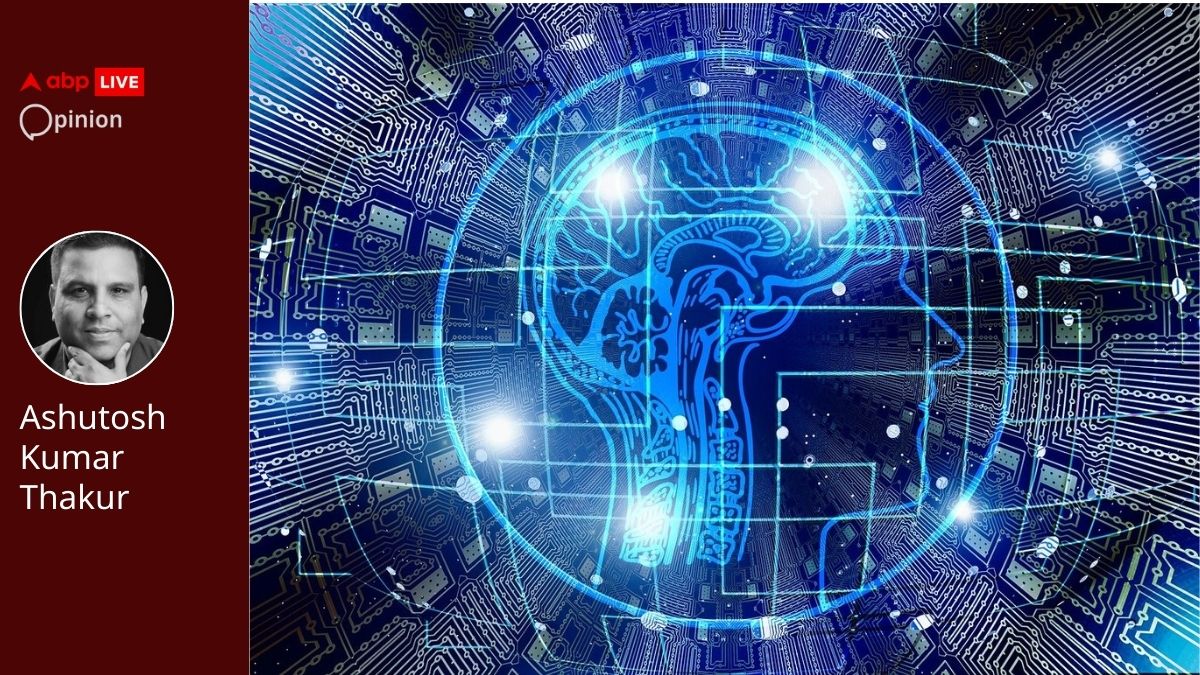South Korea is advancing rapidly with its national quantum strategy. With over $2 billion in investments, cross-ministerial coordination, and global research partnerships, the conversation around quantum readiness is becoming more urgent than ever. One critical question lingers in the background: Is the world ready for what comes next? To address the opportunities and challenges that revolve around quantum computing, we sat down with Kapil Dhiman, CEO and Co-Founder of Quranium, the world’s first quantum uncrackable blockchain designed to withstand quantum attacks, to discuss South Korea’s quantum leap, the convergence of AI and quantum computing, and why post-quantum blockchain isn’t just a nice-to-have; it’s a necessity.
As a visionary leader in the tech, entrepreneurship, and Web3 space, Kapil brings valuable insights on blockchain, AI, and cybersecurity. Through Quranium’s 2025 “Be Uncrackable” global 30+ country roadshow, Quranium is spearheading a movement to put the matter of digital security firmly on the map. Not only is the roadshow designed to raise awareness of the challenges ahead from the impending quantum era, but also the positive and very real solutions that will provide immunity from the inevitable security threats.

Strategically, Quranium has incorporated Seoul into its global tour. Indeed, South Korea’s rapidly expanding Web3, quantum and AI ecosystem is a compelling reason for our region to be a key destination. Kapil’s mission for the roadshow is to raise awareness about what he sees as the next frontier in digital infrastructure: a quantum-secure, scalable, decentralized foundation that’s built to last.
--Ed. Q: Kapil, welcome! Happy to have you here. So, for those new to Quranium—let’s begin with what it is and why it was created.
A: Quranium is the quantum-uncrackable Layer 1 blockchain and our goal is crystal clear–to secure the future of finance, data, and infrastructure in an era where quantum computers could break today’s cryptography. Most blockchains are still built on cryptographic methods that quantum computing will eventually outpace. That’s a ticking time bomb for digital security–especially in spaces like Web3 and Decentralized Finance (DeFi).
At the forefront of the groundbreaking new market sector known as DeQUIP (Decentralized Quantum-Uncrackable Infrastructure Protocol), which we coined last year and which we have seen many other companies falling under that category, Quranium is setting the benchmark for progress, redefining security in an ever-evolving digital landscape. We’re not just building a blockchain that’ll survive Q-Day. We’ve designed it so that it thrives in a post-quantum world.
Q: You mentioned DeQUIP, Kapil. Can you elaborate a bit more on it? A: Yes, of course. DeQUIP (Decentralized Quantum Uncrackable Infrastructure Protocol) is a new market category designed to distinguish truly secure, decentralized, and quantum-proof technologies.
Until now, solutions like Quranium were grouped with other players that lack post-quantum cryptography despite the increasing risks posed by quantum computing. Quranium created DeQUIP to set a clear standard for uncrackable security in the digital age, and to separate the quantum-proof decentralized solutions from those employing and reliant on old and quantum-vulnerable security measures. Why does this matter? Well, Quantum advancements are rapidly making current encryption methods obsolete.
Hackers are already using tactics like Store Now and Decrypt Later (SNDL) - collecting encrypted data today with the intent to break it once quantum computers reach their full potential. Without quantum-proof security, today’s sensitive information is at serious risk. However, DeQUIP isn't just a market category; it's a movement toward a truly secure future.
Q: OK, thank you. So please explain/elaborate on how Quranium is different from other Layer 1 blockchains out there. What makes it uniquely prepared for the quantum era? A: Most layer1 blockchains are focused on scalability or speed–but they’re not built with the quantum threat in mind.
That’s where Quranium stands apart. We’ve prioritized quantum resilience from day one without compromising on decentralization or performance. We use NIST (National Institute of Standards and Technology) approved post-quantum cryptographic algorithm SLH-DSA – a stateless, hash-based digital signature standard that’s designed to resist both classical and quantum attacks.
In fact, quantum-resistant algorithms require more computational resources, potentially impacting performance, but Quranium is optimized from the beginning to handle these algorithms efficiently. This ensures seamless and secure operations. By implementing SLH-DSA, Quranium positions itself as a forward-thinking blockchain, ensuring its infrastructure remains immune to quantum threats while maintaining user security and transaction integrity.
However, that’s just one part of the story. We’re also solving the Blockchain Trilemma–the long-standing challenge of simultaneously achieving scalability, decentralization, and security. Quranium’s dual-layer architecture is designed to handle high volumes of transactions while maintaining top-tier security and decentralization, offering a balanced and effective solution for modern blockchain needs.
Q: South Korea has launched several national initiatives to accelerate quantum technology. From your perspective, why is Korea an important stop on Quranium’s global roadshow? A: South Korea is actively shaping global quantum innovation and the recent launch of the Quantum Strategy Committee, massive government investment, and cross-sector collaborations show Korea’s commitment to becoming a quantum powerhouse. In addition, it’s also one of the most active Web3 markets in the world.
On one hand, it’s ambitious to lead initiatives for the quantum era, on the other, the country’s crypto trading volumes are surging–hitting over $34 billion in a single day last year and regularly surpassing its traditional stock exchanges. Almost 32% of the population are registered on crypto exchanges, and the country’s crypto market cap crossed $40.1B in 2024, with growth continuing in 2025.
Beyond numbers, though, Korea’s blend of tech-savvy users, regulatory momentum, and rising public-private partnerships makes it a natural collaborator in building the next layer of digital trust. At Quranium’s global roadshow, we’re not just showcasing technology–but we’re starting critical conversations with the innovators of tomorrow. That’s where Korea brings a unique blend of government backing, private-sector innovation, and academic excellence.
It's progressing on both quantum infrastructure and Web3 adoption and is not only the perfect environment to discuss the threat of quantum computing but also an opportunity to lead the shift toward quantum-safe infrastructure. Q: SK is investing billions in commercializing quantum and fostering talent. How can the country ensure that blockchain and Web3 infrastructure evolve to remain quantum-secure? A: I would say South Korea is doing all the right things to lead the quantum charge, from investing in R&D to forming strategic committees and building out talent pipelines.
However, one critical area that mustn’t be overlooked is the security layer that underpins all of this innovation. Since the cryptographic foundations of the most current blockchain and Web3 infrastructure will become obsolete once quantum progresses, it’s important to ensure long-term resilience by integrating post-quantum cryptography (PQC) into blockchain standards today–not after Q-day hits. This means incentivizing PQC research in the Web3 space, supporting quantum-safe startups, and encouraging collaboration between government, academics, and builders.
There’s also a huge opportunity to become a regional hub for post-quantum infrastructure–setting benchmarks that others follow. Q: That’s interesting. Several Korean companies, like telecom and electronics giants, are already exploring quantum-safe networks.
I would like to know how Quranium’s DeQUIP protocol complements or supports this larger ecosystem.? A: It’s no doubt promising to see Korea’s telecom and electronic leaders like SK Telecom, Samsung, and LG proactively integrate quantum-safe technologies like QKD and post-quantum cryptography into their infrastructure. It reflects an understanding that secure communication is the foundation of digital trust.
Quranium’s DeQUIP fits into this ecosystem as the foundational layer that ensures scalable, secure, and decentralized transaction systems–specifically those where sensitive data or digital assets are involved. We see enormous potential for collaboration between Quranium and Korea’s quantum-forward enterprises to create a truly uncrackable digital future. Q: Some industry voices still believe that quantum computing is decades away.
Why is Quranium urging immediate action—and what’s at risk if we wait too long? A: Now, that’s one of the most critical assumptions we’re seeing in the industry today–that quantum computing is years (or ages) away. The hard truth is that the race has already begun. We can already see major tech companies like Google, Microsoft, and Amazon, as well as government entities, investing billions of dollars in quantum computing, resulting in breakthroughs in quantum error correction, chip stability, and algorithm optimization, accelerating the timeline.
If we wait too long, then it’ll be too late for companies and institutions to protect their sensitive data, encrypted communications, and transactions from the quantum threat. In fact, the National Institute of Standards and Technology (NIST) set an important timeline for companies to transition to post-quantum cryptography (PQC), the key milestone being 2030 because of today’s current encryptions like RSA and ECC being vulnerable to quantum attacks. These algorithms will be disallowed by 2035, meaning, organizations should and can no longer rely on these algorithms for security after that date.
This transition isn’t easy, but it’s non-negotiable. NIST’s 2030 deadline is certainly not a starting line–it’s a checkpoint by which organizations should already be well on their way. Which is why Quranium was created–not to wait, but to build an infrastructure that’s future-proof because once a vulnerability is exposed, it’ll be too late.
So, this isn’t about fear–it’s about foresight. And the window to act is rapidly closing. Q: What’s the biggest misconception you come across when discussing quantum threats in Web3 and blockchain ecosystems? A: The biggest misconception? Probably, quantum threats are a distant problem–something that we can deal with ‘later on.
’ Many believe we’ll cross that bridge when we get to it, but the reality is that we’re already on the bridge. Another misconception is that blockchain is inherently secure. Most current Layer 1s use classical cryptography like ECDSA and RSA, which quantum computers will eventually break.
The moment a cryptographically relevant quantum computer comes online–whether that’s in five years of ten–it won’t knock on your door. It’ll already be inside. We also often hear, “My data’s fine, it’s encrypted so it’s protected.
” But that’s exactly the issue that we’re talking about here–quantum breaks encryption. That means past, present, and even future transactions can be exposed through ‘Store Now, Decrypt Later’ attacks that are already being implemented by cybercriminals. Q: With partnerships across different countries, how do you tailor your message about quantum readiness for different regions? What stood out in Korea’s response so far? A: Every region has a unique starting point when it comes to quantum awareness.
In some parts of the world, we’re still raising awareness of what quantum computing is and its capabilities. In others, like South Korea, for instance, we’re already having nuanced conversations about commercialization and infrastructure integration. Our message though is always grounded in the same mission: building a secure, decentralized future before it’s too late.
But the way we frame it sometimes differs. For example, we’ve seen SK focusing on practical applications–how quantum security intersects with national industries like semiconductors, AI, and telecom. There’s definitely a remarkable openness here to collaborate between government, academia and enterprise.
What’s really stood out most is Korea’s proactive approach. They’ve been launching initiatives like the Quantum Strategy Committee and investing heavily in R&D, showing the country isn’t just curious but committed to the core. For Quranium, we’re talking about building a quantum-secure future, and Korea is most certainly a key partner for us.
Q: What would a quantum-uncrackable digital future look like? And how does Korea fit into that vision? A: If I would have to imagine what a quantum-uncrackable digital future would look like, I would say it’d be a future where trust is no longer vulnerable. It’d be a world where all financial systems, healthcare data, digital identities, AI models, and smart cities are all protected at the cryptographic core–immune to the threats posed by quantum decryption. Blockchain wouldn’t just be decentralized, it’d be resilient.
Data isn’t just stored–it’s safeguarded. And innovation doesn’t come at the cost of security. Transactions will be secured by quantum key distribution (QKD), where any attempt to intercept a key alters it.
Korea has been deeply rooted in various sectors such as telecom, electronics, AI, and now quantum, uniquely positioning itself to transform and lead. We see Korea as a potential hub for quantum-secure innovation because together, we can do so much more. Together, we can ensure that when Q-day arrives, the systems that power our digital lives remain uncrackable.
Q: Let’s shift a little bit and talk about Artificial Intelligence. AI is being rapidly adopted across sectors in Korea—from healthcare to smart cities. But as these systems scale, how important is it to ensure they're quantum-secure from the start? A: I would say it’s absolutely non-negotiable.
AI models are being integrated more and more into systems, allowing them to become the backbone of almost everything, from autonomous transportation to medical diagnostics and national infrastructure. However, the more valuable and powerful they become, the more attractive they are to threats–including those posed by quantum computing. A single breach could unravel entire systems.
AI systems depend heavily on model privacy, secure communication, and data integrity, but this is what most people often overlook. If the underlying ecosystem isn’t quantum-secure, we’re essentially building the future on sand. Q: At Quranium, do you see AI as a threat, a compliment—or something you’re actively integrating into your quantum-secure blockchain infrastructure? A: That’s a good question, and yes, we see AI as a powerful complete–it’s absolutely something we’re integrating into Quranium.
Like any technology, AI can either be a tool or a threat, but it depends on how you, as a company, look at it, and how it’s being deployed and protected. If left unguarded, AI models can be manipulated or reverse-engineered–especially in a quantum era where traditional security measures fall short. Quranium is aiming to build an infrastructure where AI can safely thrive.
We definitely don’t see AI as a threat but as an ally. Q: As quantum threats rise, how does Quranium work with the global community—enterprises, governments, and researchers—to stay ahead of the curve? A: Addressing quantum threats not only means having great tech, but it also demands global collaboration. We’re actively engaging and partnering with enterprises that focus on integrating quantum-resistant infrastructure into sectors like finance and identity management.
Whether it’s co-hosting events like The Quantum Threat: Future-Proofing Finance in Singapore with PwC or working alongside innovators in Switzerland, UAE, United States, Australia, Europe, the Middle East, and now South Korea, our mission to create a quantum-secure digital ecosystem has been well-defined. Q: Will we see more of Quranium in Korea? Any upcoming partnerships, events, or collaborations you can tease? A: Without a doubt–yes. South Korea is a key part of our vision for a quantum-secure Web3 future.
We’re already partnered with some incredible players–QQ Net, Happy Bridge, Blockchain Today, Clever Partners, Biskit, and Inofi–to bring that vision to life. These collaborations are not just strategic but play a huge part in our community growth, education, and R&D. This is just the beginning, though, as we’re expecting further exciting announcements soon.
I can’t wait to share them with you in due time. Q: What message do you have for Korean developers, researchers, and policymakers who want to be part of building the next layer of digital trust? A: To Korea’s incredible tech community–developers, researchers, policymakers–you stand at the edge of a historic opportunity. While many believe that quantum isn’t coming (yet), I hate to break it to you, but it’s already knocking.
With your government’s bold national strategies, deep academic excellence, and thriving startup ecosystem, Korea has all the right ingredients needed to lead the world in building a secure digital future. At Quranium, we believe digital trust has to be quantum-secure, decentralized, and future-ready. We invite Korea to co-create this next layer with us.
If you’re building for tomorrow–let’s make sure it’s truly uncrackable. As South Korea advances its quantum ambitions–investing billions, nurturing talent, and pushing commercialization–one thing is clear: the future is arriving faster than we thought it would. Quranium’s vision isn’t just about staying ahead of the curve but redefining it.
In a world where everyone’s racing toward quantum computing, our team is building the foundational layer of trust for the next era of digital infrastructure–decentralized and uncrackable. So whether you’re a policymaker, developer, or a leader in Korea, the call to action is evident–the time to prepare is not tomorrow or the day after; it’s now..
Technology

Exclusive Interview: Kapil Dhiman of Quranium, Building an Uncrackable Quantum Future

South Korea is advancing rapidly with its national quantum strategy. With over $2 billion in investments, cross-ministerial coordination, and global research partnerships, the conversation around quantum readiness is becoming more urgent than ever. One critical question lingers in the background: Is















